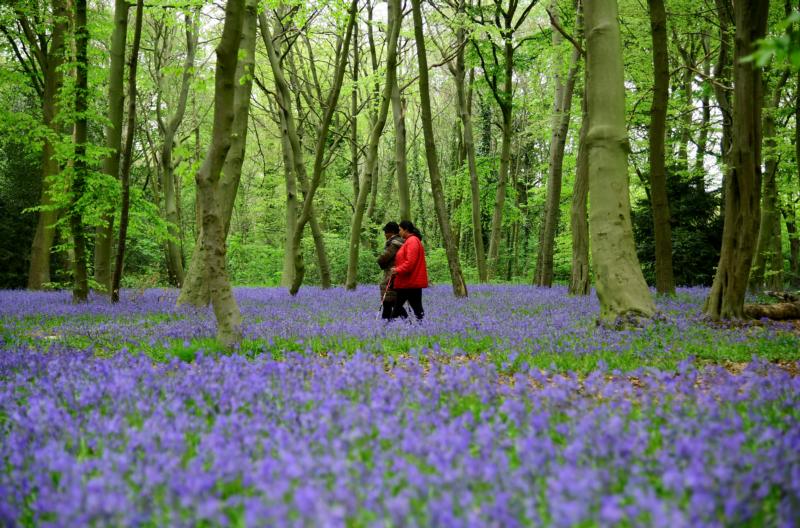
Today’s responsorial psalm uses brief excerpts from the lengthy Psalm 104, a paean to God’s work as Creator. In keeping with the theme of Pentecost, the selected verses highlight the Holy Spirit who not only creates but also renews.
The first stanza reads as if a blind person had suddenly received sight and been given a whirlwind tour of the entire earth. In contemporary terms we could sum up the spontaneous reaction as “Wow! Awesome!”
What response could be more natural for a psalmist than to compose and sing a song of praise? He hopes it will be pleasing to God: May the glory of the Lord — the glory manifest in the beauty and sublimity of creation — endure forever.
Much as you or I might be pleased with a creation of ours, such as a work of art or an exceptional meal, so too may the Lord be glad in his works. For the psalmist, in turn, the Lord and his works are the cause of his rejoicing.
Inevitably, things die. It’s part of the cycle of life — death, then rebirth, as the earth is renewed by the resurgence of new life in spring. The force that brings about this renewal is God’s Holy Spirit.
The Spirit that, in Genesis, moved over the waters of chaos at the dawn of creation and brought about order and the awesome diversity of life on earth is the same Spirit that renews the face of the earth — on a regular basis with the annual return of spring and after natural or humanmade disasters such as wildfires, tsunamis and pandemics.
As the Jesuit poet Father Gerard Manley Hopkins observed, “There lives the dearest freshness deep down things.”
The Lord has risen. By his passion, death and resurrection, he has freed us from our ancient captivity to sin and all that enslaves us, and throughout the Easter season we process all that this means.
During the last 50 days we have been living with, and trying to process, the tension between the good news and the not-so-good news. How do we receive the good news through the filter of a devastating pandemic that has in countless ways affected every imaginable area of human life?
Perhaps better put, how do we view the endless torrent of bad news through the lens of the Gospel — God’s good news that assures us of a risen Lord who has fought a cosmic battle between life and death and emerged victorious?
Christ is risen. As Christians we cling to this statement and to all it implies. We don’t need to wallow in the negativity and doomsday messages of social media. Christ is truly risen.
He is the word of God who “spoke in partial and various ways to our ancestors through the prophets” (Heb 1:1) and in other ways: notably, “concealed in the storm cloud” (Ps 81:8, Grail version), for example. He has something to say to us in good times and not-so-good, in times of rejoicing and times of sorrow.
Jesus’s resurrection points to a renewal of life. It rejects destruction and negativity. The Book of Revelation promises a new heaven and a new earth and assures us that God will wipe away all our tears and that death and suffering will be no more (Rv 21:4).
All will be redeemed — renewed, changed into something even better. By living and expressing our own faith and resisting the contemporary currents of pessimism and blame, we can — we must — be agents of renewal in our own time.
The bearers of the good news have that power to ensure that our present sufferings don’t descend into an apocalyptic mess, but rather that we uncover the “dearest freshness” of which Father Hopkins wrote.
This Pentecost more than ever we are called to express our firm faith in the Holy Spirit as renewer, who promised more than once, “I make all things new.”









